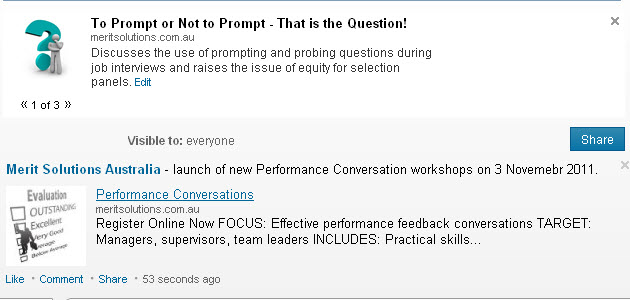 Are you aware of the marketing style that you use in promoting your small business? Developing a consistent and congruent marketing style is one aspect of effective business branding.
Are you aware of the marketing style that you use in promoting your small business? Developing a consistent and congruent marketing style is one aspect of effective business branding.
This point was brought home to me by Nancy Marmolejo, a visibility expert, who teaches small business owners to “step into the spotlignht” by understanding and developing their preferred marketing style. She suggests that if you use trial and error to develop your style it will cost you time, money and effectiveness. Your marketing style is what you use to persuade people to take action (basically, your influencing style)
In a recent webinar, Nancy identified three basic marketing styles:
1. Practical Engineer
The core theme of this style is “follow my instructions”. The Practical Engineer is methodical and uses facts, figures and logic to influence people to buy their products and services. They are the ones who will give you the “numbers” as proof, focus on the outcomes and spell out the steps to get there. In a managerial context, these people are described as the “assertive persuaders”. Nancy highlighted Tanya Smith as a person who was able to dramatically grow her busines by getting in touch with her own preferred influencing style, the Practical Engineer:
http://www.spicyhatsystems.com
2. Trusted Advisor
People who use the “Trusted Advisor” marketing style typically do not like to sell – their focus is on being connected, developing relationships and demonstrating authenticity. They are able to persuade through their reputation, knowledge, credibility and the relationships they develop. The trusted advisor will be the person who is non-competitive and who gives endless free information. They build trust easily and are typically warm-hearted and nurturing in their approach. However, the downside in terms of developing their small business is that they find it hard to ask for the sale and are very indirect in their approach to marketing. The danger for the trusted advisor is that they can be generous “to a fault”. In a managerial context, they are equated to people who use the “participation and trust” style of influencing. Nancy identied Cathy Jennings as an exemplar of the Trusted Advisor marketing style:
http://www.nopressurenetworking.com
3. Brand Evangelist
The message of the “Brand Evangelist” marketing style is “follow me”. They are the visionaries who help people see the future, to envisage possibilities. They tend to be charismatic and propose that their way will work for everybody. The downside is that other people may be wired very differently – we are not all the same. For example, there are many different learning styles and people differ in relation to these learning styles. In a mangerial context, the Brand Evangelist is described as a person who uses the “Common Vision” approach. Nancy identified Allison Rapp as an exemplar of the Brand Evangelist marketing style:
http://www.getthepracticeyouwant.com
While Nancy Marmolejo’s “Spotlight U” approach is particularly useful for those who own consulting or coaching businesses, it has relevance across the whole spectrum of small business. In her own coaching, she helps small business owners to get in touch with their preferred marketing style, to understand the “shadow” or inherent weaknesses of their style and to develop marketing activities consistent with their preferred style.
Nancy has many testimonials where people report that her coaching program enabled them to really get in touch with who they are and how they like to operate. Participants felt relieved that they did not have to be “everything to everybody” – they could really be themselves, play to their strengths and attract the kind of people they want to work with. Where your marketing style lines up with who you are, everything becomes a lot easier – you are not pushing against natural forces.
Having heard the testimonials and seen Nancy’s passion for what she does (in her typical Brand Evangelist style), I feel comfortable in recommending her coaching program.
Postscript:
I’ve found that I have used different marketing styles in different arenas. Typically, I have only drawn on two marketing styles – Trusted Advisor and Brand Evangelist. These two styles are related and are quite different in orientation to the Practical Engineer style.
When I was President of ALARA (Action Learning and Action Research Association), my goal was to develop a global, not-for-profit organisation that would establish a strategic network of people who shared a common vision about improving equity and justice in the world. So I adopted a “Brand Evangelist” approach and spent a lot of time influencing people to use these intervention modalities to improve their local situation (whether in schools, organisations or communities).
When I started to focus on building expertise in social media and small business marketing, I adopted very much the Trusted Advisor marketing style. I built up my reputation and credibility online by developing and sharing expertise and building lots of relationships. This approach was reflected this year in the joint development, with friends in the US and Germany, of a social network for online writers, Wizzley.com.
In marketing my own Human Resource Consultancy business, I have adopted a Trusted Advisor marketing style.



